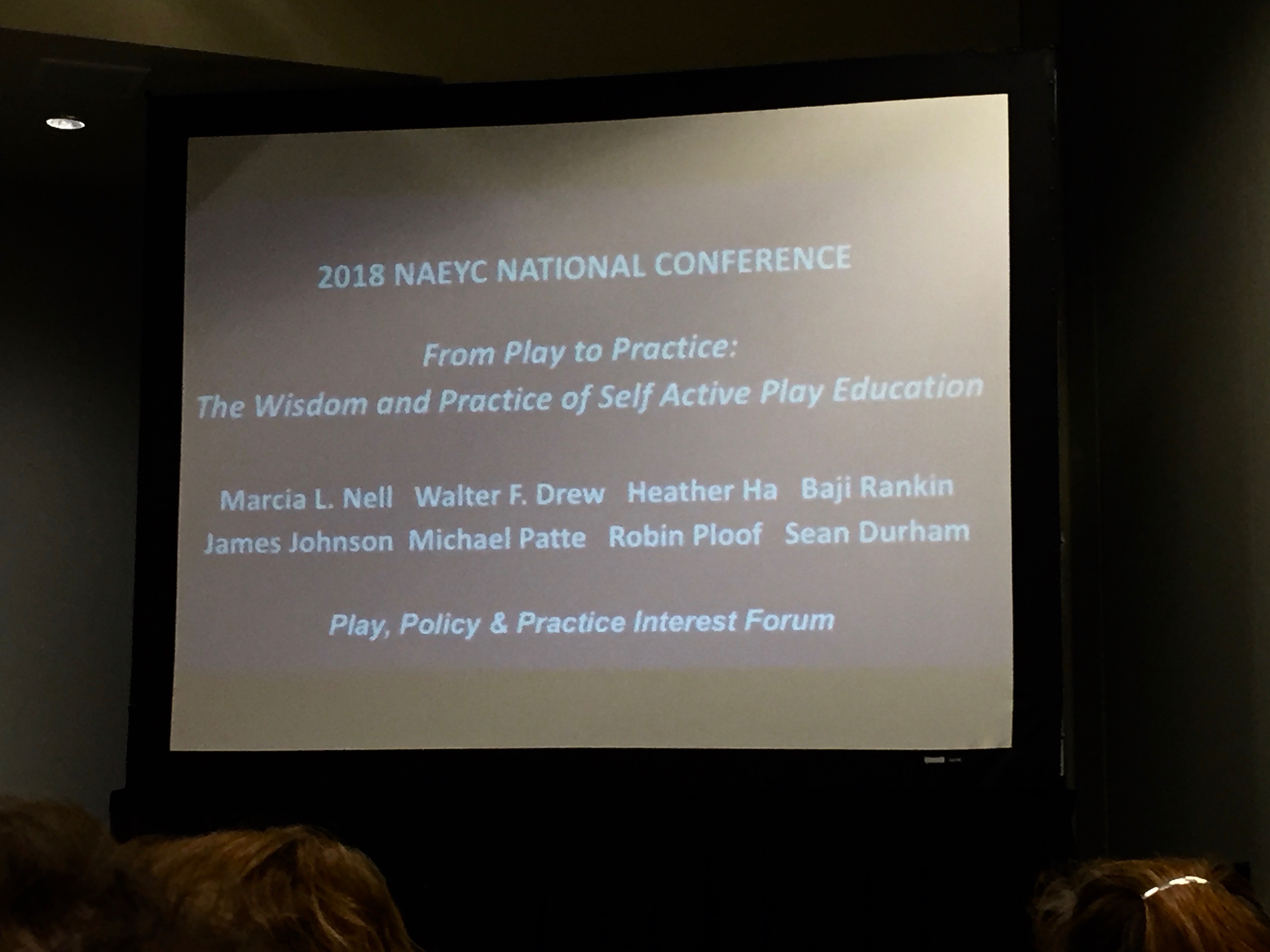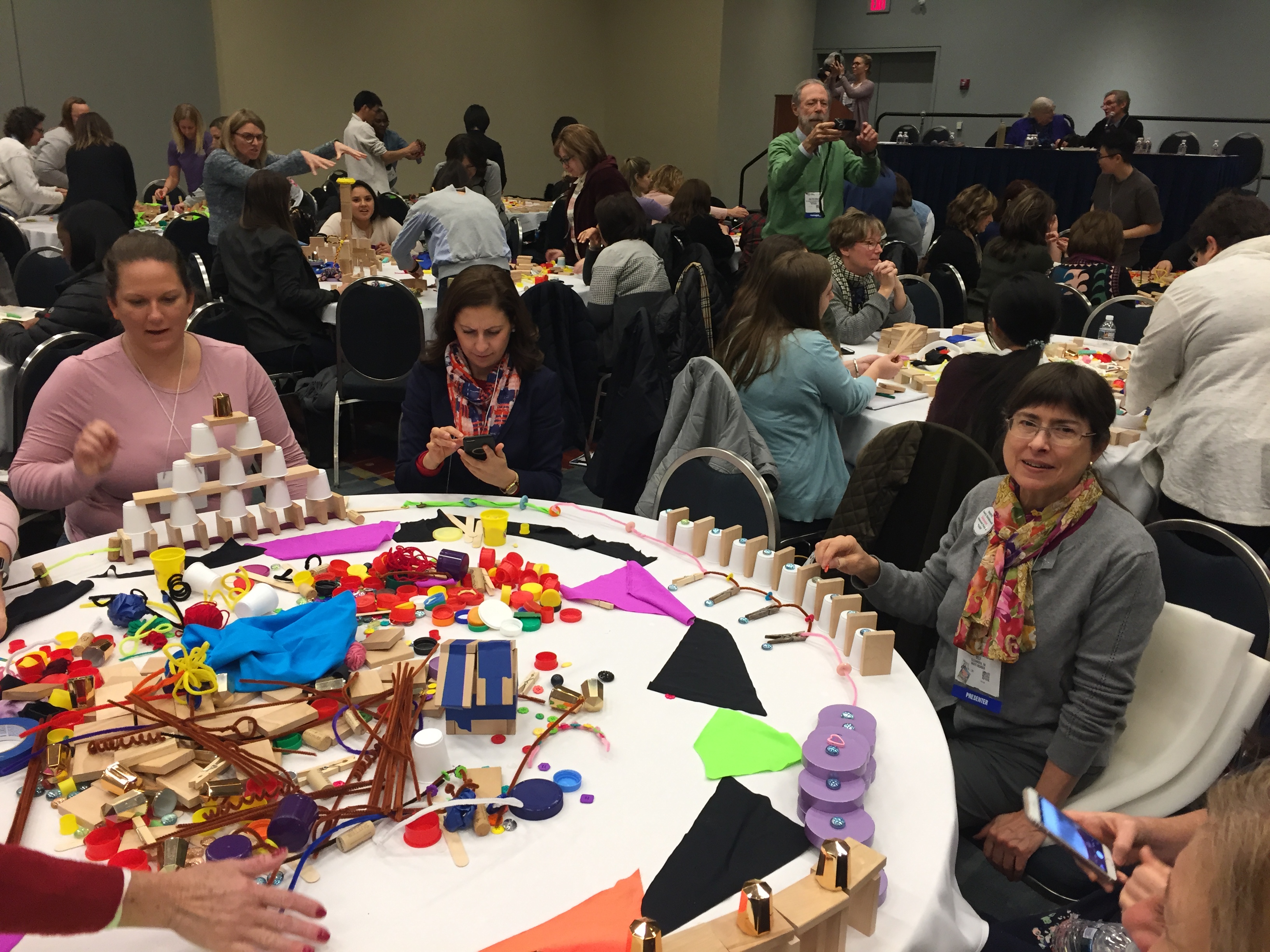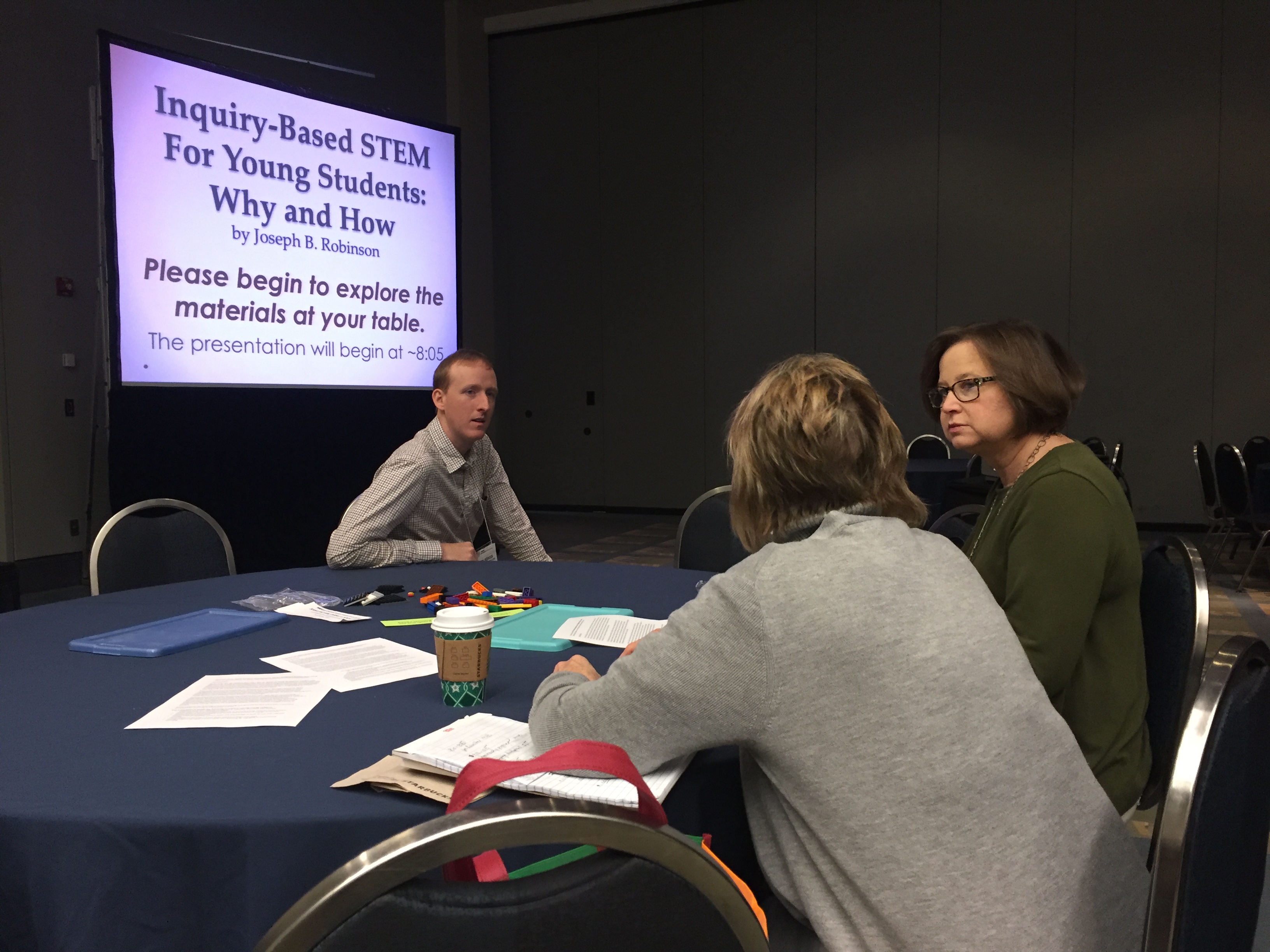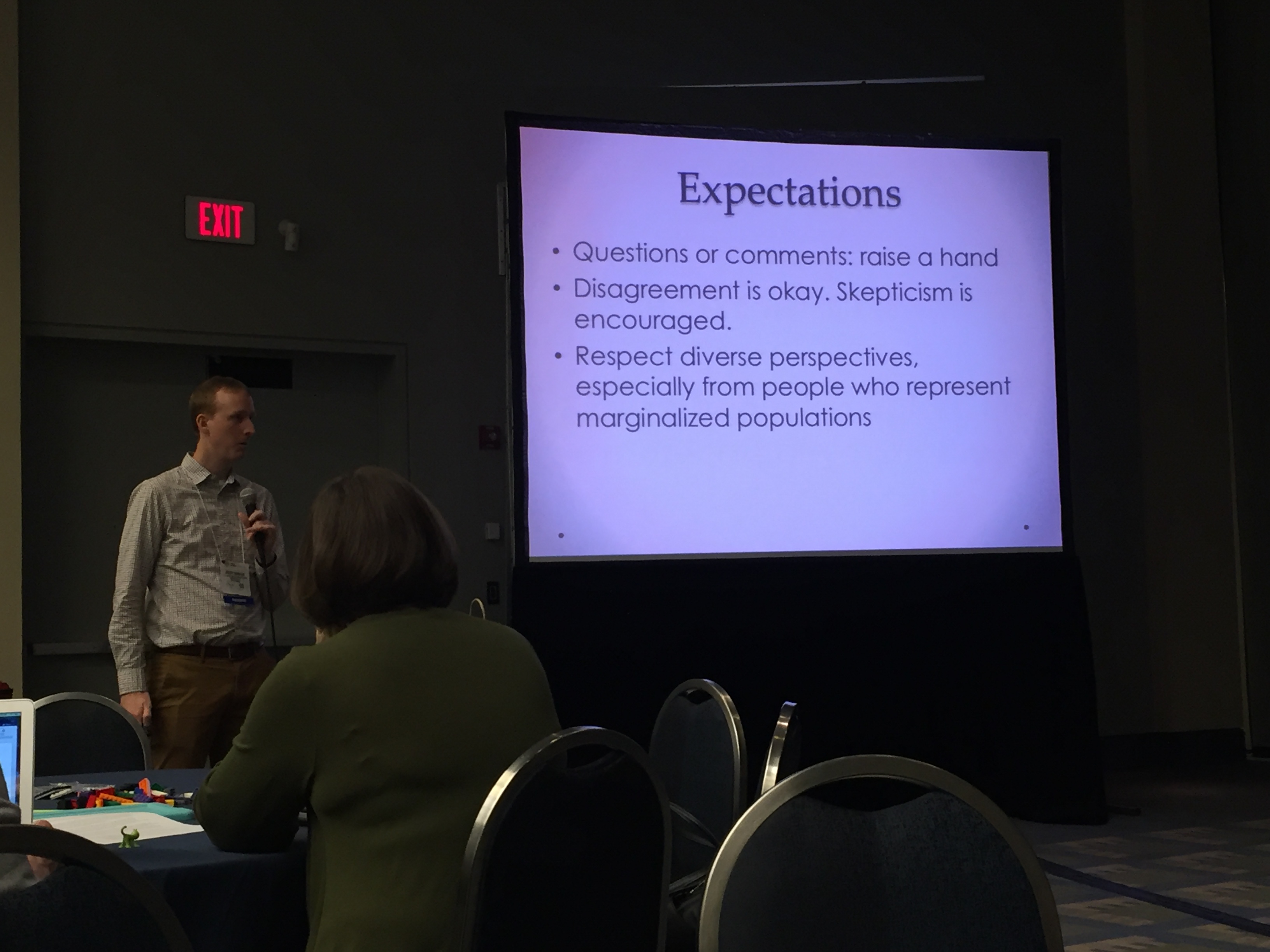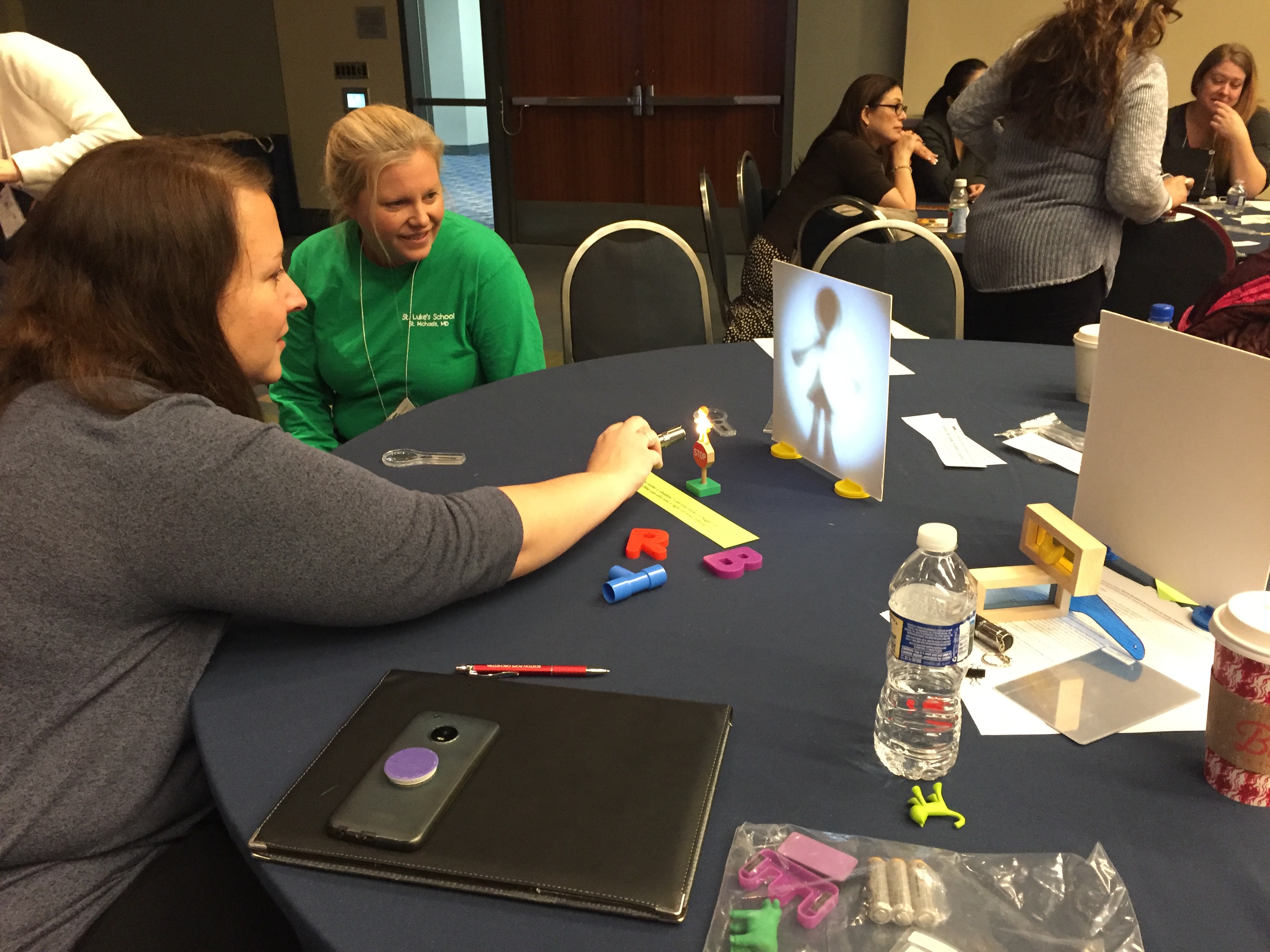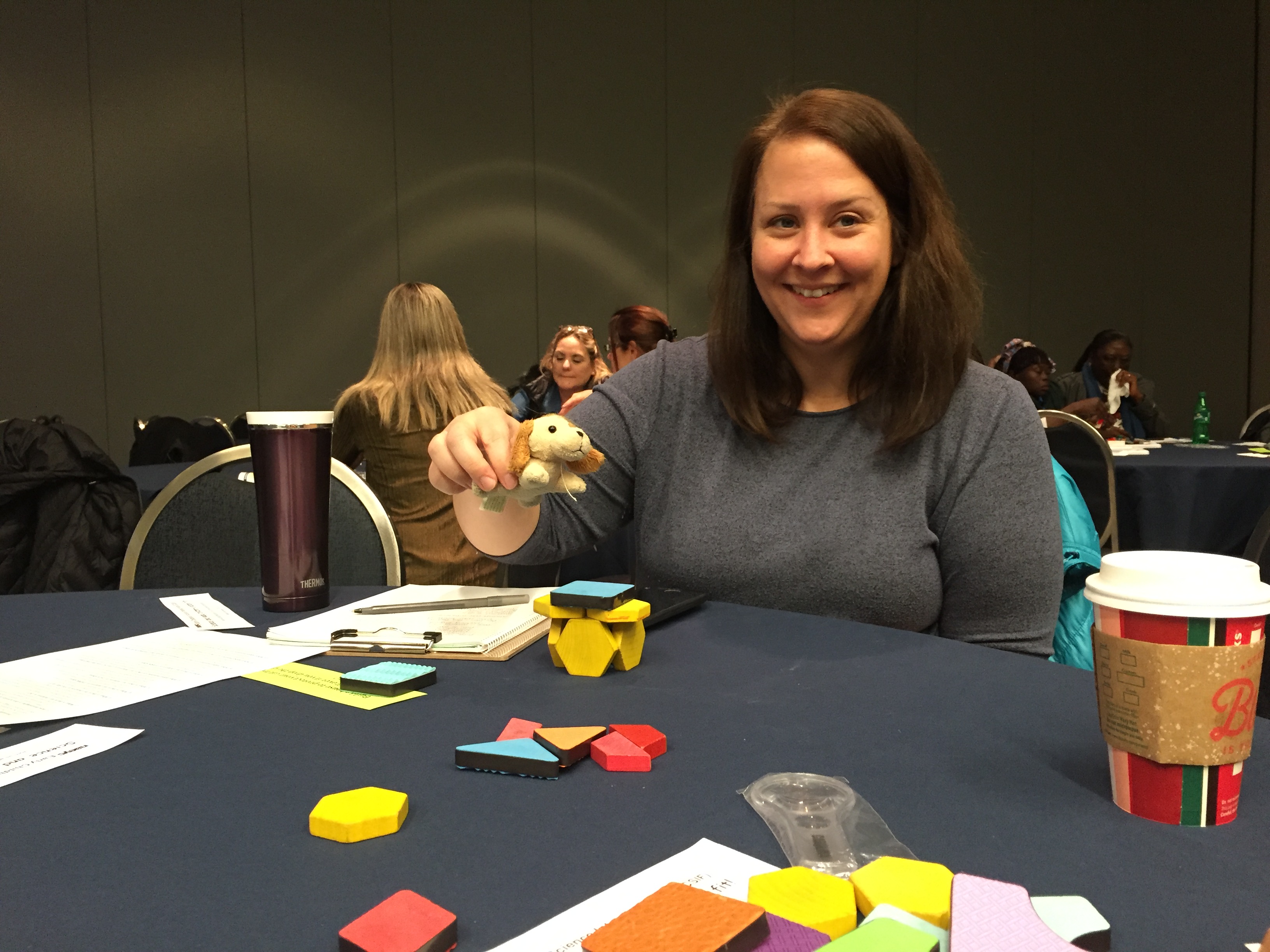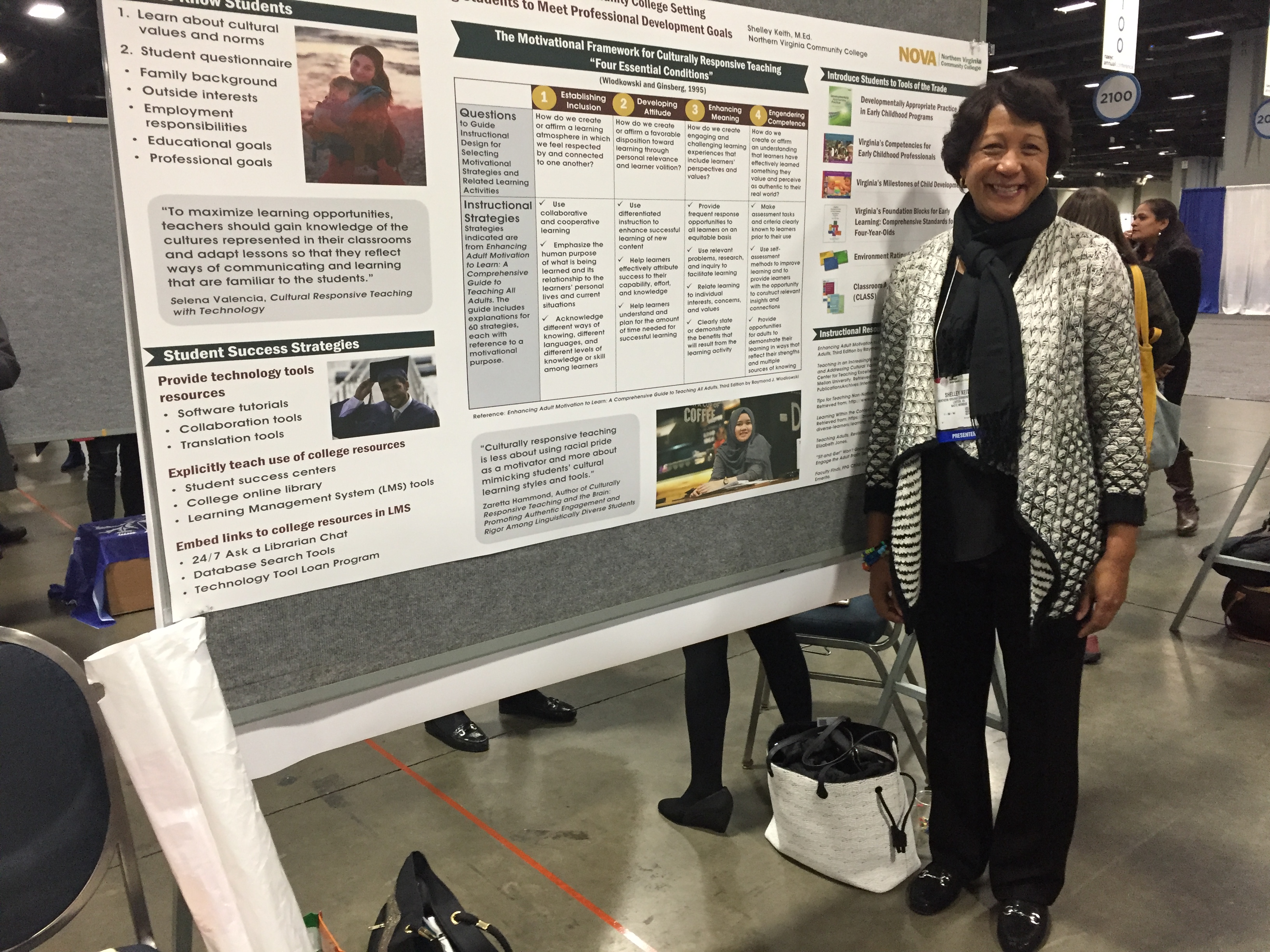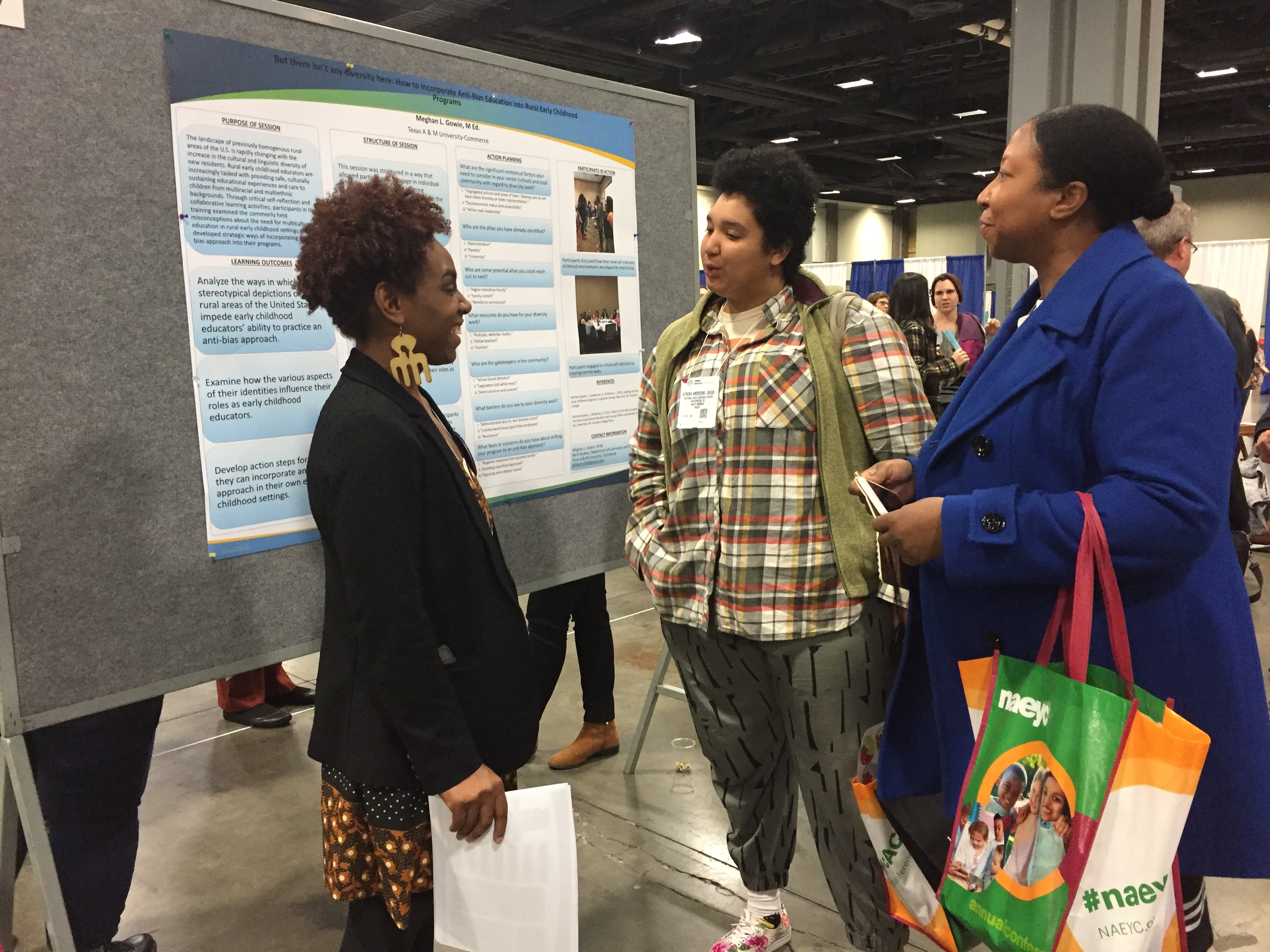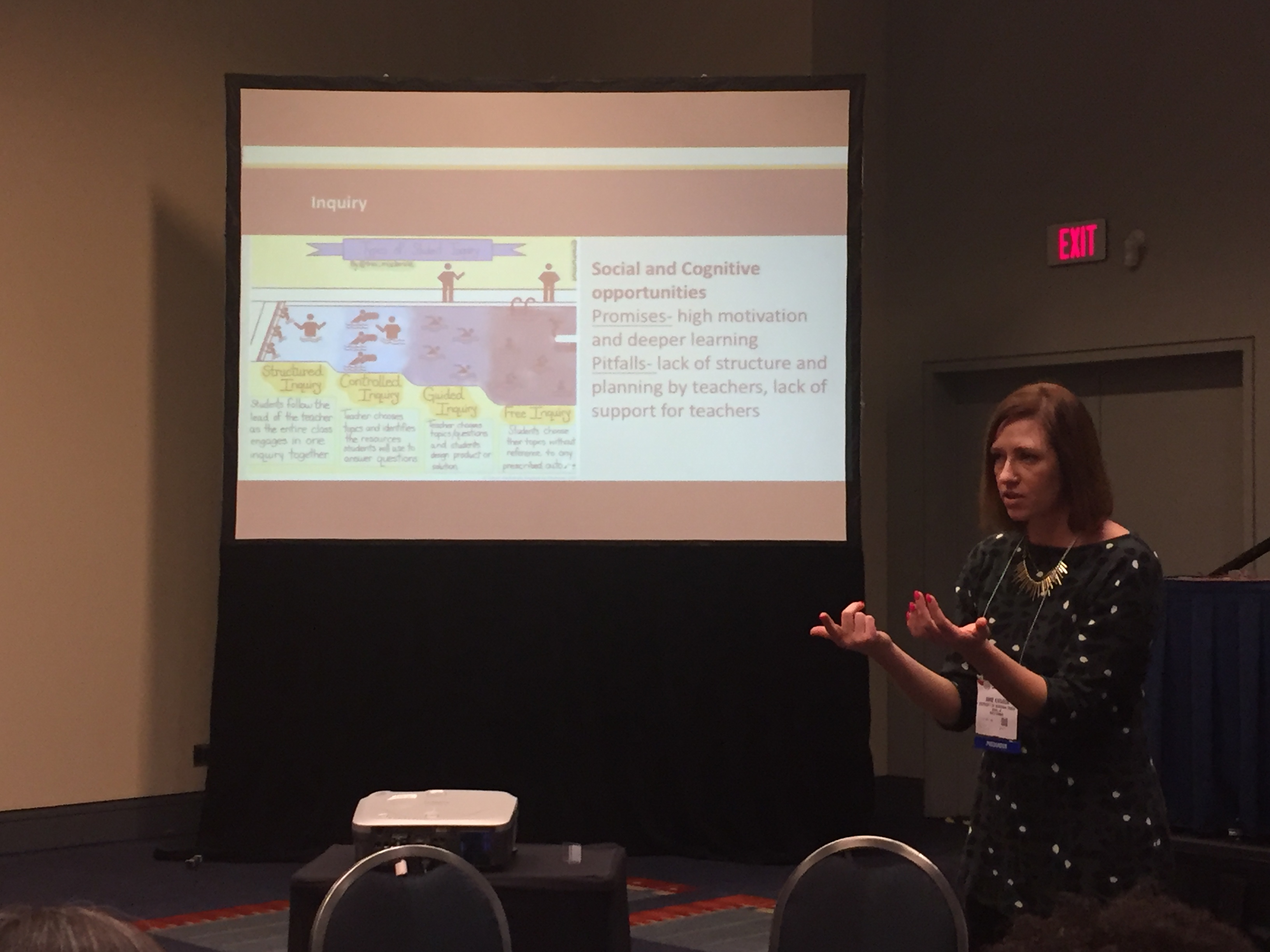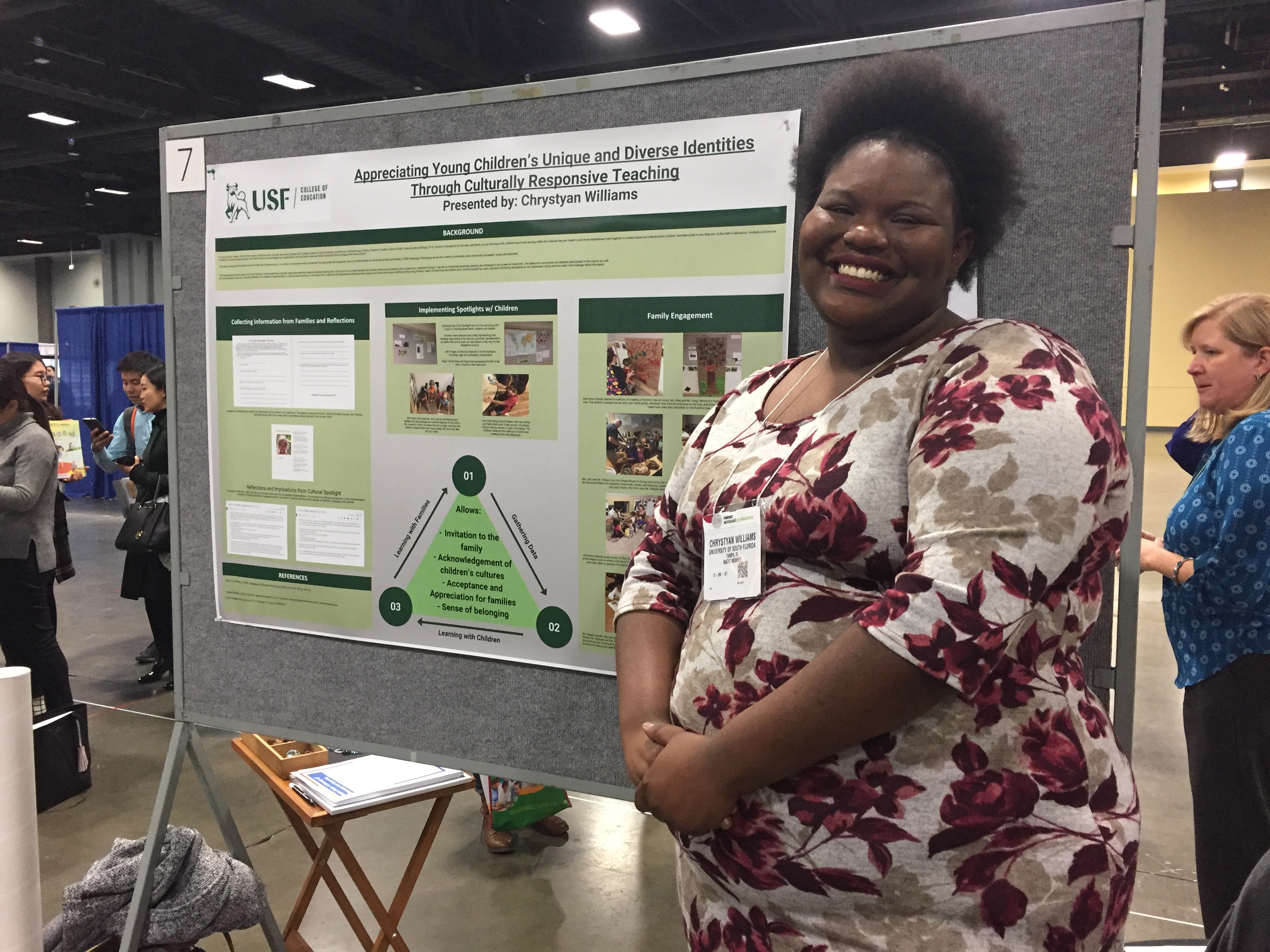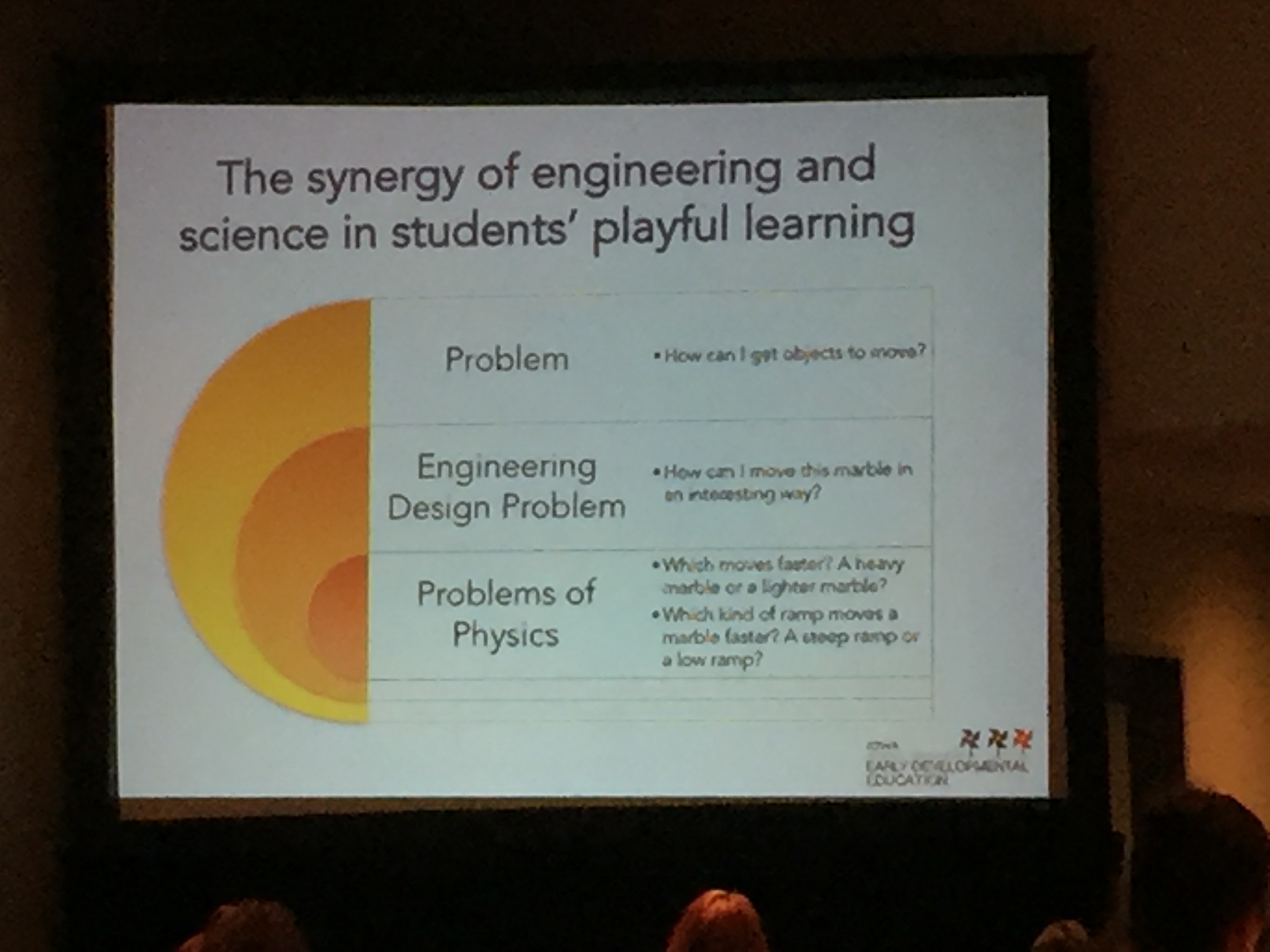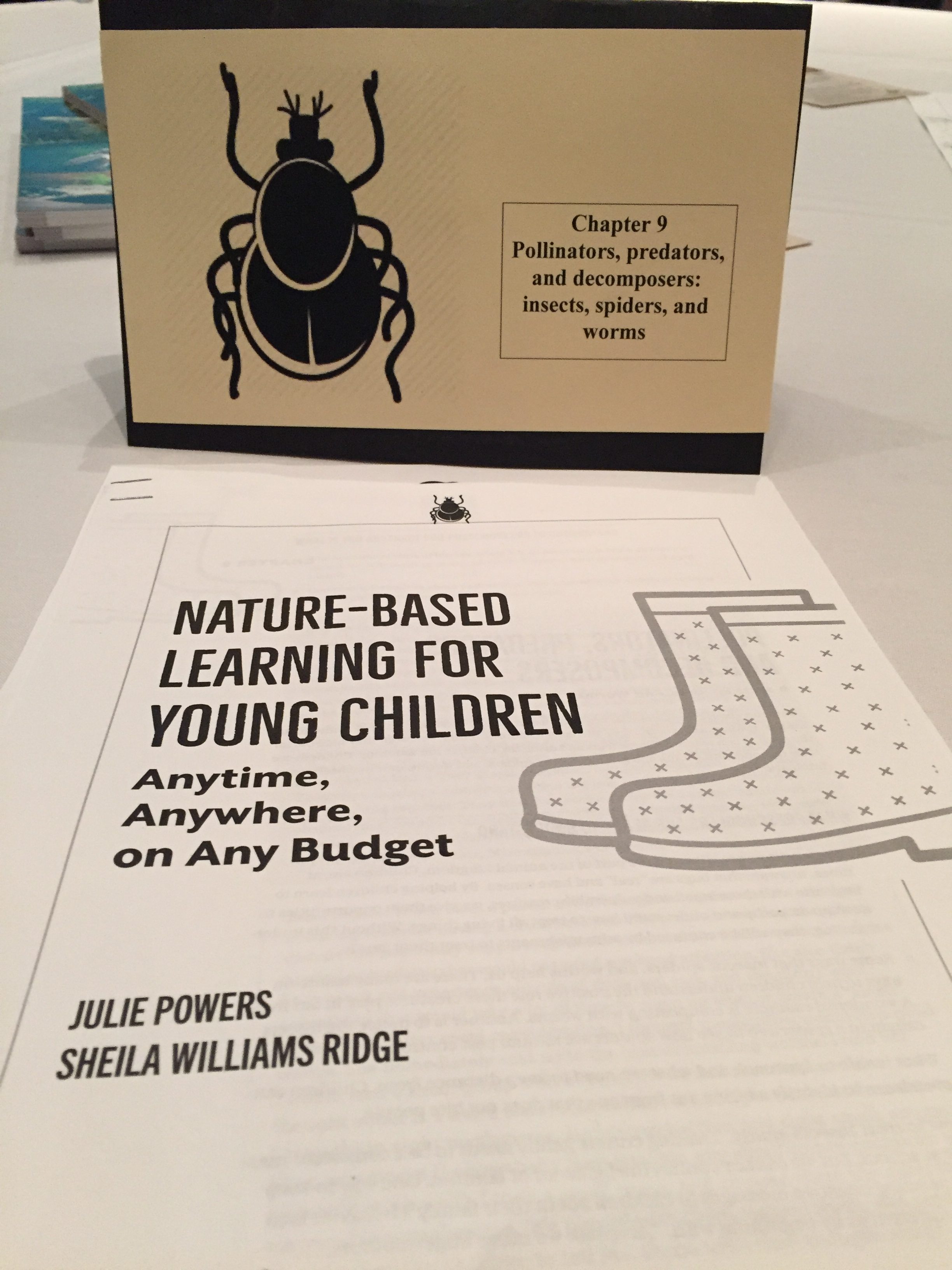Early childhood science education at conferences
By Peggy Ashbrook
Posted on 2018-11-30
When a conference has plenty of sessions about science and engineering learning in early childhood—so many that each time slot has 2 or more such sessions—it shows that preschool, kindergarten, and first and second grade teachers are interested in teaching science. Some might not understand much about science yet, or have taken few science education courses, but they don’t lack confidence to participate in conference sessions on science.
There was an abundance of science sessions specifically for early childhood educators, where the focus was on children’s learning from ages 3 to 8, at both the 2018 NSTA national conference and the 2018 annual conference of the National Association for the Education of Young Children (NAEYC). Many sessions were full—standing room only—and even the last session on the last day was well attended. This speaks to science and engineering being relevant to early childhood curriculum and of high interest to children. 

Sessions in the “Diversity & Equity” NAEYC conference track on diversity and equity in all sectors of the early childhood field were also full, teaching educators about our implicit biases and strategies to talk with young children about culture, race, and racism, making the statement that NAEYC is for everyone. The NAEYC draft position statement on “Advancing Equity and Diversity in Early Childhood Education” is another indication that the organization and profession is for all people, and education is for all children. The opening statement of the draft states, “All children have the right to equitable learning opportunities that help them achieve their full potential as engaged learners and valued members of society. Early childhood educators have a professional and moral obligation to advance equity and diversity. They can do this best in early learning settings that reflect fundamental principles of fairness and justice and that implement the goals of anti-bias education.”
The NSTA position statements Gender Equity in Science Education (2003) and Multicultural Science Education (2000), are under revision.
In commentary on equity in science education S. Elisabeth Faller writes, “As the Next Generation Science Standards (NGSS) make clear, equity must be a priority in today’s science classrooms (NGSS Lead States 2013). This means ensuring that all students, regardless of race, gender, and economic or linguistic background, are able to access, evaluate, challenge, and even generate scientific knowledge” (July 2018 Science Scope). The principles she identifies and discusses can be used by teachers of all ages to support “…students who perceive science to be in conflict with other aspects of their identities, such as gender, ethnicity, or economic class” to develop “positive, science-linked identities.”
Conference learning can be a moment of sudden insight and also take weeks to settle into practice. To read about the 2018 NSTA national conference in Atlanta, visit the April 1, 2018 Early Years blog post. I am going over my notes from NAEYC 2018 which are less helpful than I thought they would be! I need to take a larger notepad with me the next time to make it easier for me to write all of a thought, not just a phrase. Photographs help me remember the action but the words that guide it are also important. Here are a few photos from my experience at the NAEYC 2018 annual conference in Washington, D.C. I appreciate the many opportunities to ask questions directly of the presenters, in large sessions and during the poster sessions. If you have any questions, post a comment and I’ll respond.
- The Play Policy & Practice Interest Forum’s session on play.
- Part of the session was time for group play with many materials.
- PreK teacher Joe Robinson let us use materials right away!
- Appropriate expectations for learners of all ages.
- Exploring shadows
- Making & observing water drops.
- Testing the designed structure…
- …it could not survive the force of the dog’s jump.
- Shelley Keith on Meeting the Diverse Needs of English Language Learners in a Community College Setting.
- Meghan Gowin on how to incorporate Anti-Bias Education into Rural Early Childhood Programs.
- Anne Karabon on Inquiry-based strategies for early elementary students.
- Chrystyan Williams on Appreciating Young Children’s Unique and Diverse Identities Through Culturally Responsive Teaching.
- Beth Van Meeteren and Sherri Peterson presented a science and engineering session on Ramps and Pathways.
- Julie Powers and Sheila Williams Ridge presented Nature education: Start small or go big!
I’m looking forward to working again with members of the NAEYC Early Childhood Science Interest Forum (ECSIF) who will also be presenting at the 2019 NSTA national conference in St. Louis!
Resources
Faller, S. Elisabeth. 2018. “Commentary “When you walk into this room, you’re scientists!” How you can promote positive, science-linked identities for all your students.” Science Scope. 41(9): 6-9. https://www.nsta.org/publications/browse_journals.aspx?action=issue&thetype=all&id=114042
NGSS Lead States. 2013. Appendix D – “All Standards, All Students.” Next Generation Science Standards: For states, by states. Washington, DC: National Academies Press. https://www.nextgenscience.org/appendix-d-case-studies
Disclaimer: The views expressed in this blog post are those of the author(s) and do not necessarily reflect the official position of the National Science Teaching Association (NSTA).






